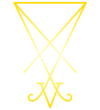Leonidas
Great Ruler of Sparta
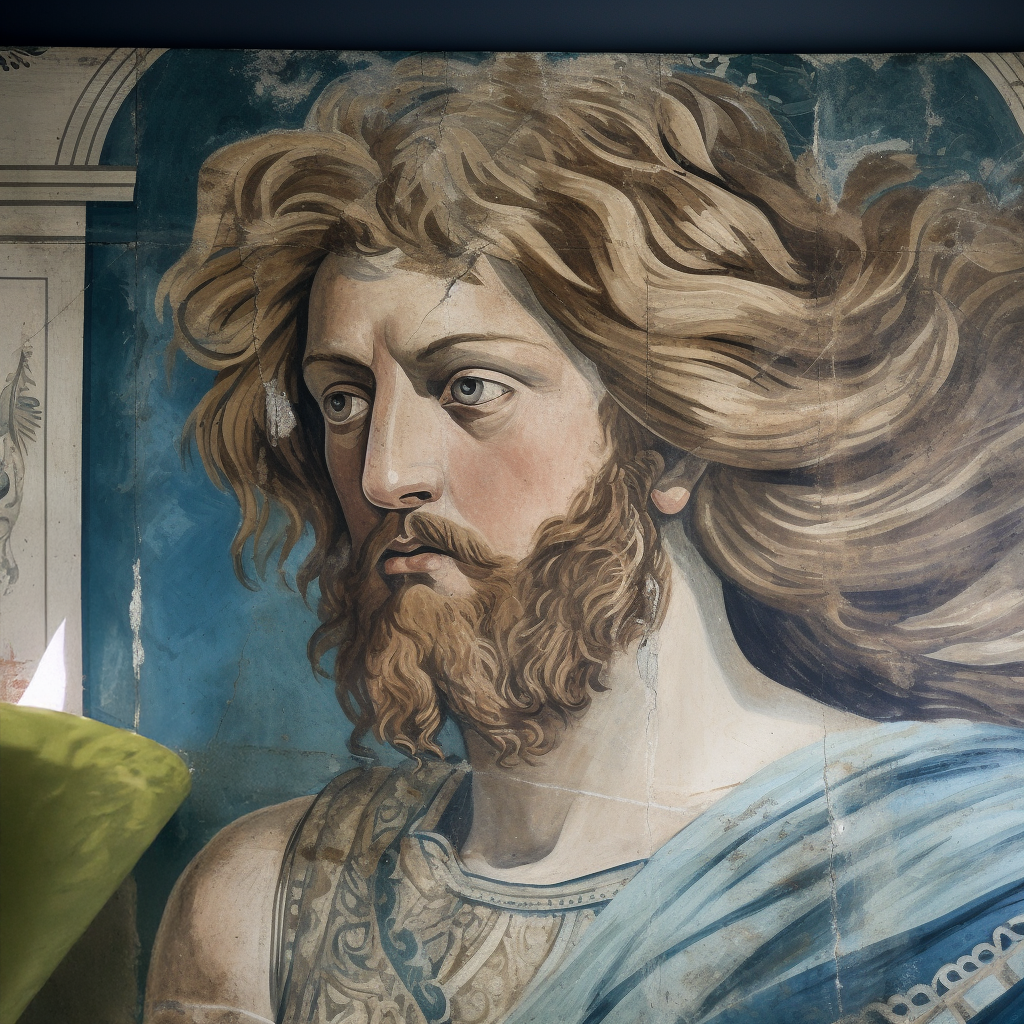
Leonidas is a well-known figure as king of Sparta, especially for his brave resistance at the Battle of Thermopylae. His life, shaped by the disciplined and military traditions of Sparta, became a symbol of heroism, sacrifice, and national honor in Greek history and culture. Leonidas’ life and leadership have been widely covered in both historical and mythological narratives, serving as a profound example of heroism and patriotism.
He is summarized by his eternal reply to Persia: ΜΟΛΩΝ ΛΑΒΕ (Come and take them).
KING OF SPARTA
The future king was born to Anaxandridas II, king of the Eurypontid dynasty of Sparta, and his second wife. The kings of Sparta usually came from two dynasties: the Agiad and Eurypontid families. Leonidas belonged to the Agiad dynasty. Even the meaning of Leonidas’ name is associated with heroism; Leonidas means “son of the lion” in Greek, symbolizing his brave and strong nature. Like all Spartan aristocracy, Leonidas traced his lineage to his legendary ancestor, Herakles.
He had three brothers: Agisilaos, Kleomenes I, and Dorieus. In Sparta, the dual throne usually passed to the eldest son, so Leonidas was not initially a direct heir. Leonidas’ eldest brother, Kleomenes I, became king after the death of their father, Anaxandridas II. However, political disputes and ambitious military campaigns against both Athens and the Persian king Darius (in aid of the Scythians) during Kleomenes’ reign would increase the likelihood that Leonidas would one day become king.
In Sparta, every man, especially those of the royal family and aristocracy, underwent rigorous military training. This training system, known as the Agoge, was at the heart of Spartan society. Agoge was a brutal and harsh process that focused on physical endurance, strategy, martial arts, and discipline. Leonidas, like all Spartan boys, endured great hardship during this process. There were no exceptions for the aristocracy; in fact, the highest level of society endured even stricter training according to Spartan mores.
Leonidas was known as exceptionally valiant and brave even in his youth. The intense training aimed to increase physical endurance, build resistance to pain and hunger, and instill the idea of service to society. His training shaped his leadership and courage, setting the stage for his later heroism at Thermopylae.
In Sparta, the highest duty of a male warrior was to serve his community and go to war. It was a society where military strength and discipline, rooted in a lack of fear of death, were the most important values. For a Spartan soldier, even standing next to a trembling companion was considered an extreme disgrace. A Spartan leader was seen as the defender and protector of his people; thus, Leonidas was raised with a deep sense of responsibility.
At the time Leonidas became king, the Greek city-states were facing the expansion of the Persian Empire and increasing threats to their territory. Due to the Athenians allying with the breakaway Ionian cities rebelling against Persia in the Ionian Revolt, the Persian king Darius I attempted to invade and crush all of Greece with a gigantic force, only to suffer a heavy defeat at the Battle of Marathon. However, this loss did not stop Persia's plans to subjugate Greece.
Leonidas became king only after the death of Kleomenes. During his reign, Kleomenes I had fought many battles with the Persians and other Greek city-states, and had serious conflicts with Athens and Argos, the latter being aligned with Persian ambitions. Leonidas inherited Kleomenes’ belief that Persia, despite the forty-six or so nations under her hegemony, was not invincible.
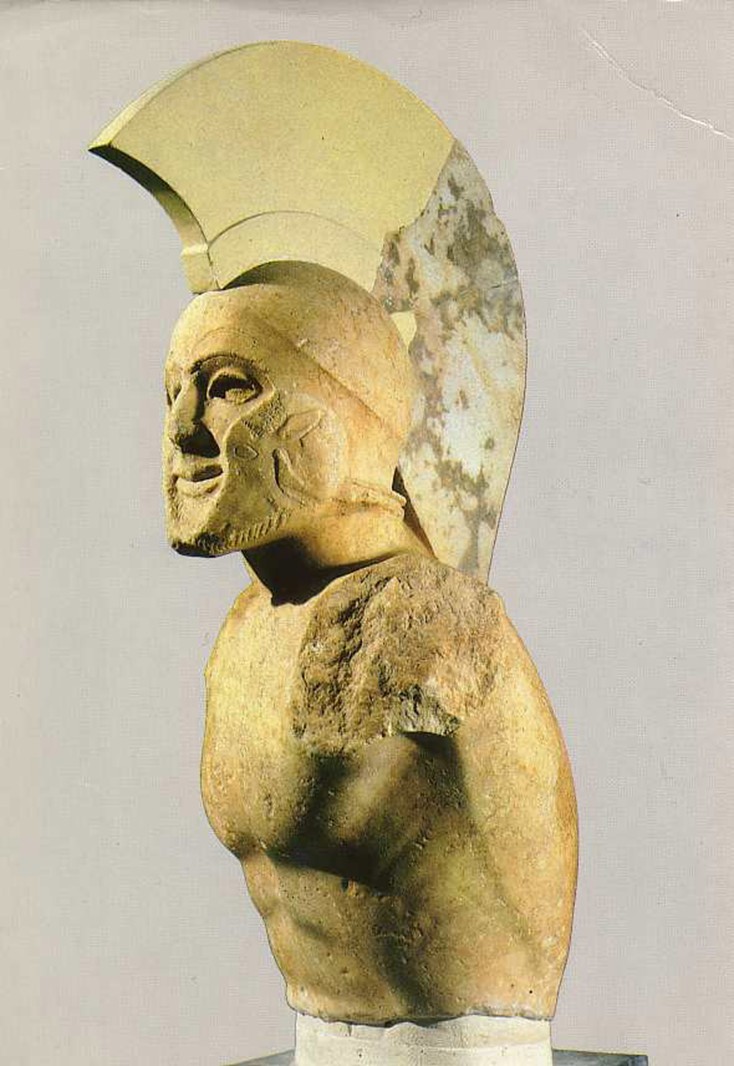
All the siblings were ambitious. Another of Leonidas’ brothers, Dorieus, died while trying to establish a colony in Africa. Kleomenes failed to pass the throne to his children; some sources say he lost his sanity before his death. Leonidas, therefore, became the strongest candidate and ascended the throne at sixty years of age, an unusually advanced time of life.
In contrast to Pericles of Athens, Leonidas was no modest man in leadership. He freely exhibited the extreme aristocratic attitude of the Spartans with little deference to his compatriots, as related in an anecdote passed down by Plutarch:
Λεωνίδας ὁ Ἀναξανδρίδα, ἀδελφὸς δὲ Κλεομένους, πρός τινα εἰπόντα, “πλὴν τοῦ βασιλεύειν ἡμῶν οὐδὲν διαφέρεις,” “ἀλλ᾿ οὐκ ἄν,” ἔφη, “εἰ μὴ βελτίων ὑμῶν ἤμην, ἐβασίλευον.”
Leonidas, son of Anaxandridas and brother of Kleomenes, in response to a man who said, “Except for being king, you are no different from the rest of us,” answered: “Yet if I were no better than the rest of you, I should not be king.” 1
Seeing Greek defiance as a stain on his father’s legacy, and encouraged by scurrilous elements in his court, along with the exiled Spartan traitor Demaratus, Darius’ son Xerxes was inflamed with ambition. He began preparing a massive army to avenge his father and conquer Greece. He also harbored ambitions for the greater conquest of Europe and Scythia, aiming to make it the centerpiece of Persepolis' grand expansion. Xerxes was further aggrieved by Spartan connections to a revolt in Babylon early in his reign. It was the Spartan response to this conflict that marked Leonidas’ leadership.
THE PYTHIAN ORACLE
In time, Xerxes mobilized a massive land and naval force to invade the mainland. He even ordered the construction of a gigantic crossing made of conjoined boats across the Hellespont, from Anatolia into Thrace, to allow his army to pass. Historians had long doubted the feasibility of such a project, until recent archaeological evidence confirmed it. On his first attempt, a violent storm destroyed the crossing. His second attempt succeeded. At the same time, Xerxes encouraged Carthage to invade Sicily, keeping the powerful Greek city-states of southern Italy from offering aid.
In response, the Greek city-states debated how to resist the Persian invasion. The Pythia of Delphi gave a terrifying and broadly discouraging prophecy:
Ὦ μέλεοι, τί κάθησθε; λιπὼν φεῦγ᾿ ἔσχατα γαιης
δώματα καὶ πόλιος τροχοειδέος ἄκρα κάρηνα.
οὔτε γὰρ ἡ κεφαλὴ μενεῖ ἔμπεδον, οὔτε τὸ σῶμα,
οὔτε πόδες νέατοι, οὔτ᾿ ὦν χέρες, οὔτε τι μέσσης
λείπεται, ἀλλ᾿ ἄζηλα πέλει· κατὰ γάρ μιν ἐρείπει
πῦρ τε καὶ ὀξὺς Ἄρης, Συριηγενὲς ἅρμα διώκων·
πολλὰ δὲ κἄλλ᾿ ἀπολεῖ πυργώματα, κοὐ τὸ σὸν οἶον·
πολλοὺς δ᾿ ἀθανάτων ναοὺς μαλερῷ πυρὶ δώσει,
οἵ που νῦν ἱδρῶτι ῥεούμενοι ἑστήκασι,
δείματι παλλόμενοι· κατὰ δ᾿ ἀκροτάτοις ὀρόφοισιν
αἷμα μέλαν κέχυται, προϊδὸν κακότητος ἀνάγκην.
ἀλλ᾿ ἴτον ἐξ ἀδύτοιο, κακοῖς δ᾿ἐπικίδνατε θυμόν.
O wretched ones, why sit there? Leave, flee from the far edges of the earth, from your homes and the towering heights of the wheel-walled city. For neither shall the head remain steadfast, nor the body, nor the low-lying feet, nor indeed the hands, nor anything in between; all shall be undone beyond envy. For fire and piercing Ares cast it down, driving his Syrian-born chariot.And he shall destroy many other ramparts, not just yours alone; many temples of the immortals he shall also hand over to furious fire, those which even now, I suppose, stand streaming with sweat, trembling with dread. And upon their utmost roofs, black blood is poured, foreseeing the compulsion of evil. But go forth from the inner shrine, and steel your souls for these woes.
When the Spartans asked her for an oracle, she responded by saying:
Ὑμῖν δ᾿, ὦ Σπάρτης οἰκήτορες εὐρυχόροιο,
ἢ μέγα ἄστυ ἐρικυδὲς ὑπ᾿ ἀνδράσι Περσείδῃσι
πέρθεται· ἢ τὸ μὲν οὐχί, ἀφ᾿ Ἡρακλέους δὲ γενέθλης
πενθήσει βασιλῆ φθίμενον Λακεδαίμονος οὖρος.
οὐ γὰρ τὸν ταύρων σχήσει μένος οὐδὲ λεόντων
ἀντιβίην· Ζηνὸς γὰρ ἔχει μένος· οὐδέ ἑ φημὶ
σχήσεσθαι, πρὶν τῶνδ᾿ ἕτερον διὰ πάντα δάσηται.
O you, inhabitants of broad-wayed Sparta: either your great and glorious city shall be sacked by the sons of Perseus, or, if this does not come to pass, then the land of Laconia shall mourn the death of a king descended from Heracles. For neither the might of bulls nor of lions can restrain the king of kings, since he holds the power of Zeus. Nor, I say, will he be stopped until he has ravaged one of these two fates completely.
BATTLE OF THERMOPYLAE
While some cities chose to surrender rather than fight against Persian power, and realms such as Macedon chose to align with the Persians, the most prominent cities, like Athens and Sparta, decided to resist. A defensive alliance was formed between the Greek city-states, and Leonidas emerged as one of its military leaders.
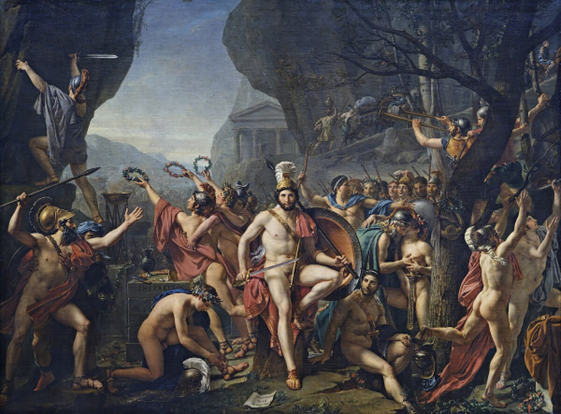
The Battle of Thermopylae, a turning point in Leonidas' life and Greek history, took place at a strategic pass in Thessaly, between a mountain range and the sea. Thermopylae was chosen because it was a narrow pass, a strategic point to prevent the Persians from landing their land forces on Greek soil. However, this was still an immense gamble, particularly as the Persian army was well-equipped, even possessing hundreds of thousands of extra-combatants on the flanks simply to supply the army.
Leonidas participated in this battle with three hundred elite Spartan warriors. Part of the reason this number was chosen for such a deadly engagement was due to the ongoing celebration of the Karneia of Apollo [Azazel], a religious festival that was a core element of Spartan life, a celebration which Persian spies across Greece had relayed to Xerxes would put the most terrifying army of the Hellenes at a severe disadvantage. However, knowing the conceit of the King of Kings well in advance, Leonidas also chose this number to demonstrate Spartan valor.
Λεγόντων δὲ τῶν ἐφόρων ὀλίγους ἄγειν αὐτὸν εἰς Θερμοπύλας, “οὐκ ἀλλὰ πλέονας,” ἔφη, “πρὸς ἣν βαδίζομεν πρᾶξιν.”
When the Ephors said that he was taking but few men to Thermopylae, he said, “Too many for the enterprise on which we are going.”1
Even in comparison to other Greeks, Leonidas took religious elements very seriously. Bringing this number partially to ensure full commitment to the Gods was an incredible gamble. To support the Spartans, they were accompanied by a force of around seven thousand men from various Greek city-states. What would become the most famous aspect of this legendary battle was the relentless resistance of this small force against the massive Persian army.
Xerxes expected a swift and crushing victory at Thermopylae. He demanded the surrender of Leonidas, offering benefits to Sparta if it chose to become a pro-Persian hegemon in Greece that would enforce the interests of the Empire. Leonidas, true to Spartan discipline and honor, refused to surrender.
Ξέρξου δὲ γράψαντος αὐτῷ, “ἔξεστί σοι μὴ θεομαχοῦντι, μετ᾿ ἐμοῦ δὲ ταττομένῳ, τῆς Ἑλλάδος μοναρχεῖν,” ἀντέγραψεν, “εἰ τὰ καλὰ τοῦ βίου ἐγίγωσκες, ἀπέστης ἂν τῆς τῶν ἀλλοτρίων ἐπιθυμίας· ἐμοὶ δὲ κρείττων ὁ ὑπὲρ τῆς Ἑλλάδος θάνατος τοῦ μοναρχεῖν τῶν ὁμοφύλων.”
Xerxes wrote to him, “It is possible for you, by not fighting against God but by ranging yourself on my side, to be the sole ruler of Greece.” But he wrote in reply, “If you had any knowledge of the noble things of life, you would refrain from coveting others’ possessions; but for me, to die for Greece is better than to be the sole ruler over the people of my race.” 1
During the first few days of the battle, due to the long phalanx spears and the bravery of the Spartan warriors, Leonidas and his army managed to hold off the Persian cavalry in the narrow pass. Despite their numerical superiority, the Persians were unable to maneuver and suffered heavy casualties in the confined space, ideal for the Greek phalanx style of combat, enraging Xerxes.
Xerxes then used a secondary tactic: showering the Spartans with arrows from afar. The Persians were immensely skilled archers and also had vast numbers of cavalry archers who could typically wipe out infantry with ease. However, due to their shields and the Spartan method of running in the opposite direction to exhaust, enrage, and expose the Persian archers, this tactic was only minimally effective. Finally, Xerxes deployed the terrifying elite cavalry, the Immortals. Yet the mountainous terrain and the mobile tactics of the Greek forces prevented the Immortals from achieving any major victories. The first day of the battle ended with the Greek forces maintaining control.
The second day continued similarly, but the Greeks began to tire under the endless waves of Persian forces. As the defenders weakened, the tide of battle began to shift in favor of the Persians, though not as swiftly as Xerxes had hoped. He therefore sought another solution.
Xerxes, a crafty individual trained in subterfuge by his father Darius, who had seized the throne of Iran through cunning, found a Greek traitor named Ephialtes, who, hoping for a grand reward, revealed a secret mountain road named the Anopaia that led around the pass of Thermopylae. This allowed the Persians to flank the Greek army from behind. The Phocians guarding this area were easily overcome.
Upon hearing of the encirclement, Leonidas allowed the rest of the Greek forces to retreat. He and his three hundred, along with several hundred Thespians and Thebans, chose to remain and resist to the end.
Herodotus relates that Leonidas stayed due to the Oracle of Delphi’s prophecy: either one of the Spartan kings would fall, or all of Sparta would be destroyed. As a pious devotee of Apollo, Leonidas chose to remain and embrace a noble death rather than sacrifice his homeland, knowing he would be hailed by the Gods.
Resolute and brave, there remained one final act on the battlefield. Leonidas' last charge against the Persians is said to have resulted in more casualties than the previous two days combined. Two half-brothers of Xerxes also died in this charge among the elite Golden Ones of the Immortals, a source of deep anxiety and an ill omen for the King of Kings.
This decision made Leonidas a symbol of heroism, benevolence, and sacrifice, an eternal emblem of patriotic devotion. The Persians eventually overwhelmed the Spartans with volleys of arrows, defeating them. But the resistance of Leonidas and his men bought time for the Greek city-states and became a powerful source of morale throughout the Greek world.
εὐθὺς οὖν οἱ μὲν ἄλλοι πάντες ἀπηλλάγησαν, ὁ δὲ Λεωνίδης μετὰ τῶν πολιτῶν ἡρωικὰς πράξεις καὶ παραδόξους ἐπετελέσατο, ὀλίγων δ᾿ ὄντων Λακεδαιμονίων (Θεσπιεῖς γὰρ μόνους παρακατέσχε), καὶ τοὺς σύμπαντας ἔχων οὐ πλείους τῶν πεντακοσίων, ἕτοιμος ἦν ὑποδέξασθαι τὸν ὑπὲρ τῆς Ἑλλάδος θάνατον.
Immediately, then, all the rest departed, but Leonidas, together with his fellow citizens, performed heroic and astounding deeds; and although the Lacedaemonians were few (he retained only the Thespians) and had altogether no more than five hundred men, he was ready to meet death on behalf of Hellas. 2
GREAT HERO
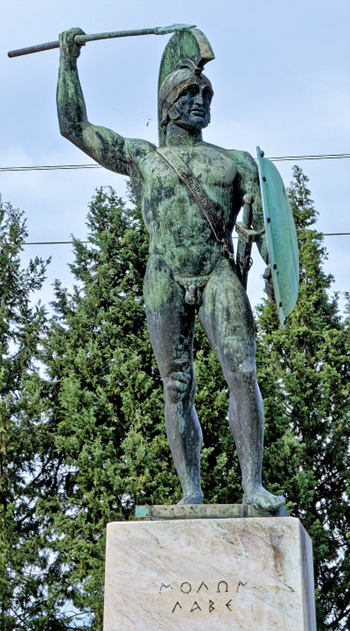
Leonidas' heroic death at Thermopylae became one of the greatest symbols of courage, sacrifice, and patriotism in Greek history, and indeed in the Western world. His leadership and resistance inspired later Greek victories over the Persians. His sacrifice in battle encouraged unity among the Greek city-states. As the Pythia had foretold, Athens was laid to waste and the Temple of Athena was ruthlessly burned by the invaders. Yet in the months that followed, the Greeks won major victories, such as the naval Battle of Salamis and the land Battle of Plataea.
Although Leonidas' body was destroyed by the Persians, it was later honored by the Spartans, who erected a monument at the site of the Battle of Thermopylae. Today, a statue stands at Thermopylae in memory of Leonidas and the three hundred Spartans. On the statue are the famous words symbolizing the courage of those who fought: “Molon Labe” (“Come and take it”), Leonidas’ defiant reply to the Persian demand for surrender.
In ancient Greece, Leonidas' heroism was deeply engraved in Spartan memory. Sparta, a society built upon discipline, war, and honor, found in Leonidas' resistance an eternal source of pride.
Thus, Pausanias (a contemporary of Marcus Aurelius) relates that Leonidas had been elevated to the status of a Hero and granted a sanctuary and cult of worship. Alongside him were two exceptionally valiant soldiers of Thermopylae named Maron and Alpheus. We know that Spartan statues of Leonidas bore religious regalia, such as the ram-horns of Ammon.
Historians like Herodotus wrote in detail about Leonidas’ leadership and the Battle of Thermopylae, providing an enduring example for the Classical world.
During the Roman Empire, Leonidas' story remained highly esteemed. The Roman sense of military virtue and patriotism greatly admired Spartan courage. Roman writers like Plutarch composed works immortalizing Leonidas’ life and deeds. Many Roman military leaders sought to emulate his heroism and stand out as disciplined and courageous.
τῶν ἐν Θερμοπύλαις θανόντων εὐκλεὴς μὲν ἁ τύχα, καλὸς δ᾿ ὁ πότμος,
βωμὸς δ᾿ ὁ τάφος, πρὸ γόων
δὲ μνᾶστις, ὁ δ’οἶτος ἔπαινος.
ἐντάφιον δὲ τοιοῦτον οὔτ᾿ εὐρὼς
οὔθ᾿ ὁ πανδαμάτωρ ἀμαυρώσει χρόνος.
ἀνδρῶν δ᾿ ἀγαθῶν ὅδε
σηκὸς οἰκέταν εὐδοξίαν
Ἑλλάδος εἵλετο· μαρτυρεῖ δὲ καὶ Λεωνίδας
ὁ Σπάρτας βασιλεύς, ἀρετᾶς μέγαν λελοιπὼς
κόσμον ἀέναόν τε κλέος.
Of those who perished at Thermopylae, glorious indeed was their fortune, noble their end;
their tomb is an altar, their remembrance precedes all mourning,
and their destiny is praise.
Such a sepulchre neither decay nor the all-subjugator Time shall dim.
This tomb of noble men has taken as its tenant
the radiant renown of Greece.
And Leonidas, the Spartan king, bears witness,
he has left behind a great ornament of valor,
an eternal glory.3
BIBLIOGRAPHY
1Sayings of Spartans, Plutarch
2Book XI, Library of History, Diodorus Siculus
3Poem of Thermopylae, Simonides
Library of History, Diodorus Siculus
CREDIT:
Thersthara
[TG] Karnonnos

 አማርኛ
አማርኛ العربية
العربية বাংলা
বাংলা Български
Български 中文
中文 Čeština
Čeština Dansk
Dansk Deutsch
Deutsch Eesti
Eesti Ελληνικά
Ελληνικά Español
Español Français
Français हिन्दी
हिन्दी Hrvatski
Hrvatski IsiZulu
IsiZulu Italiano
Italiano 日本語
日本語 Kiswahili
Kiswahili Magyar
Magyar Македонски
Македонски नेपाली
नेपाली Nederlands
Nederlands فارسی
فارسی Polski
Polski Português
Português Română
Română Русский
Русский Slovenščina
Slovenščina Suomi
Suomi Svenska
Svenska Tagalog
Tagalog Türkçe
Türkçe